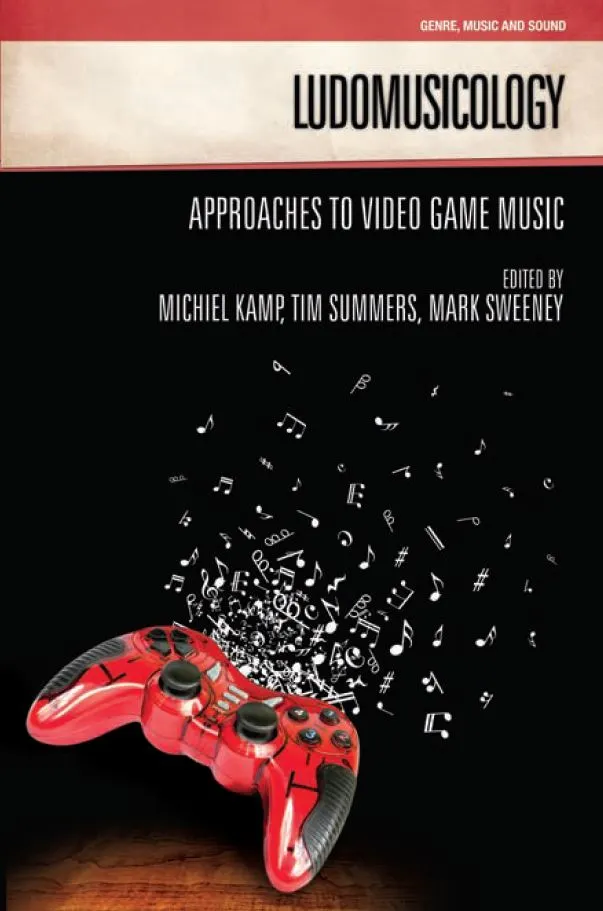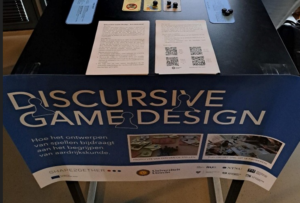
“Ludomusicology: Approaches to Video Game Music” was published by Equinox in July 2016 as part of their Genre, Music and Sound series, the chapters largely originated from our inaugural conference in Oxford.
The last half-decade has seen the rapid and expansive development of video game music studies. As with any new area of study, this significant sub-discipline is still tackling fundamental questions concerning how video game music should be approached. In this volume, experts in game music provide their responses to these issues.
This book suggests a variety of new approaches to the study of game music. In the course of developing ways of conceptualizing and analyzing game music it explicitly considers other critical issues including the distinction between game play and music play, how notions of diegesis are complicated by video game interactivity, the importance of cinema aesthetics in game music, the technicalities of game music production and the relationships between game music and art music traditions.
This collection is accessible, yet theoretically substantial and complex. It draws upon a diverse array of perspectives and presents new research which will have a significant impact upon the way that game music is studied. The volume represents a major development in game musicology and will be indispensable for both academic researchers and students of game music.
“The last half-decade has seen the rapid and expansive development of video game music studies. As with any new area of study, this significant sub-discipline is still tackling fundamental questions concerning how video game music should be approached. In this volume, experts in game music provide their responses to these issues. This book suggests a variety of new approaches to the study of game music. In the course of developing ways of conceptualizing and analyzing game music it explicitly considers other critical issues including the distinction between game play and music play, how notions of diegesis are complicated by video game interactivity, the importance of cinema aesthetics in game music, the technicalities of game music production and the relationships between game music and art music traditions. This collection is accessible, yet theoretically substantial and complex. It draws upon a diverse array of perspectives and presents new research which will have a significant impact upon the way that game music is studied. The volume represents a major development in game musicology and will be indispensable for both academic researchers and students of game music” – The publisher
Table of Contents
- “Introduction” Michiel Kamp, Tim Summers, Mark Sweeney
- “Analyzing Video Game Music: Sources, Methods and a Case Study” Tim Summers
- “Analyzing Game Musical Immersion: The ALI Model” Isabella van Elferen, Kingston University, London
- “Modularity in Video Game Music” Elizabeth Medina-Gray, Independent Scholar
- “Suture and Peritexts: Music Beyond Gameplay and Diegesis” Michiel Kamp
- ““It’s a-me, Mario!” – Playing With Video Game Music” Melanie Fritsch, Independent Scholar
- “Game and Play in Music Video Games” Anahid Kassabian, Independent Scholar, and Freya Jarman, University of Liverpool
- “‘Listening’ Through Digital Interaction in Björk’s Biophilia” Samantha Blickhan, PhD Candidate
- “Palimpsest, Pragmatism and the Aesthetics of Genre Transformation: Composing the Hybrid Score to Electronic Arts’s Need for Speed Shift 2: Unleashed” Stephen Baysted, University of Chichester
- “Isaac’s Silence Purposive Aesthetics in Dead Space” Mark Sweeney, University of Oxford
- “Remixed Metaphors: Manipulating Classical Music and Its Meanings in Video Games” William Gibbons, Texas Christian University
ISBN Hardback: 9781781791974
ISBN Paperback: 9781781791981




